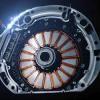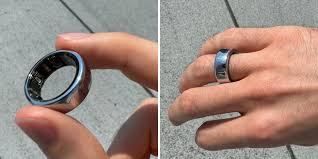
Breaking News
 OpenAI and Oracle announce Stargate AI data centre deal
OpenAI and Oracle announce Stargate AI data centre deal
 TRUMP "Gaza is starving, you can't fake what I've seen" | Redacted News
TRUMP "Gaza is starving, you can't fake what I've seen" | Redacted News
 Home
Store
Podcast
Contact Us
Members'
30 Minutes To Excellence
Home
Store
Podcast
Contact Us
Members'
30 Minutes To Excellence
Top Tech News
 "No CGI, No AI, Pure Engineering": Watch Raw Footage Of 'Star Wars'-Style Speeder
"No CGI, No AI, Pure Engineering": Watch Raw Footage Of 'Star Wars'-Style Speeder
 NASA's X-59 'quiet' supersonic jet rolls out for its 1st test drive (video)
NASA's X-59 'quiet' supersonic jet rolls out for its 1st test drive (video)
 Hypersonic SABRE engine reignited in Invictus Mach 5 spaceplane
Hypersonic SABRE engine reignited in Invictus Mach 5 spaceplane
 "World's most power dense" electric motor obliterates the field
"World's most power dense" electric motor obliterates the field
 The Wearables Trap: How the Government Plans to Monitor, Score, and Control You
The Wearables Trap: How the Government Plans to Monitor, Score, and Control You
 The Streetwing: a flying car for true adventure seekers
The Streetwing: a flying car for true adventure seekers
Magic mushrooms may hold the secret to longevity: Psilocybin extends lifespan by 57%...
 Unitree G1 vs Boston Dynamics Atlas vs Optimus Gen 2 Robot– Who Wins?
Unitree G1 vs Boston Dynamics Atlas vs Optimus Gen 2 Robot– Who Wins?
 LFP Battery Fire Safety: What You NEED to Know
LFP Battery Fire Safety: What You NEED to Know
 Final Summer Solar Panel Test: Bifacial Optimization. Save Money w/ These Results!
Final Summer Solar Panel Test: Bifacial Optimization. Save Money w/ These Results!
Is All of This Self-Monitoring Making Us Paranoid?

Sarah Hills was worried about her heart.
Her Oura Ring, a wearable device that tracks users' biometric data, including body temperature, heart rate and blood oxygen levels, was telling her something might be off.
The ring provides some of its data in the form of scores, like a "readiness" score that uses "sleep quality, body signals, and activity levels to show how prepared you are to take on the day," according to Oura. Since receiving the ring as a Christmas gift, Ms. Hills had begun to compulsively check her stats. If her scores weren't good, the 22-year-old said, she would ruminate.
When her stats wobbled this year, she tried to see a doctor. When she couldn't get an appointment soon enough, Ms. Hills, a recent graduate of Providence College, and a friend drove to a pharmacy where she spent $50 on an at-home blood pressure cuff and monitor to put her mind at ease.
"At that point I was, like, 'Oh my gosh, this thing is literally destroying my mind,'" she said.
Eventually, Ms. Hills was able to see a doctor who told her she was healthy. The doctor did have one recommendation: Consider ditching the ring.
In the eternal human quest to know thyself, it's tempting to seize on every bit of information we can glean. If you could know, for instance, not just that you slept 6.5 hours last night but also that 12 percent of those hours were spent in REM sleep and that your overall "sleep efficiency" — time asleep versus time awake — was 85 percent, as many pieces of wearable tech can tell you, why wouldn't you?
At least that's the attitude of many people in our age of the quantified self, in which collecting sheaves of data about our bodies every day seems to hold the promise of bringing about a happier, healthier life. But what if all of that data is also heightening our stress? Is there a metric for that?
While some Oura users say they enjoy the ring as a screen-free way to keep tabs on their bodies, several Oura owners, including Ms. Hills, described feeling increasingly anxious after using their devices. Rather than helping them feel more in control of their wellness, the data only made them fixate on potential — and often nonexistent — problems.

 Life Under Anarchy
Life Under Anarchy

